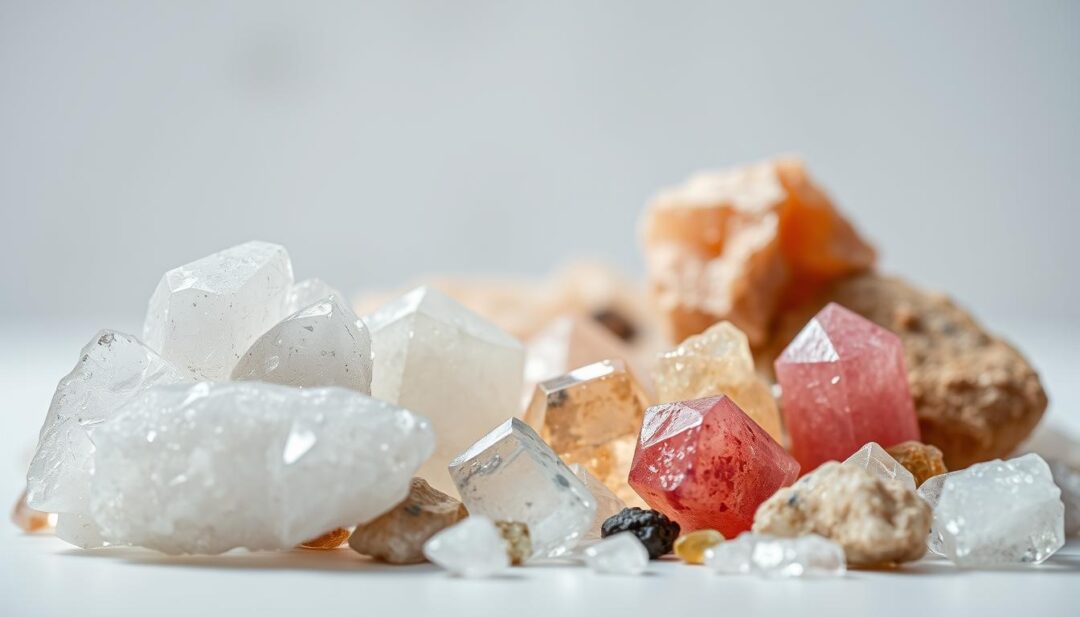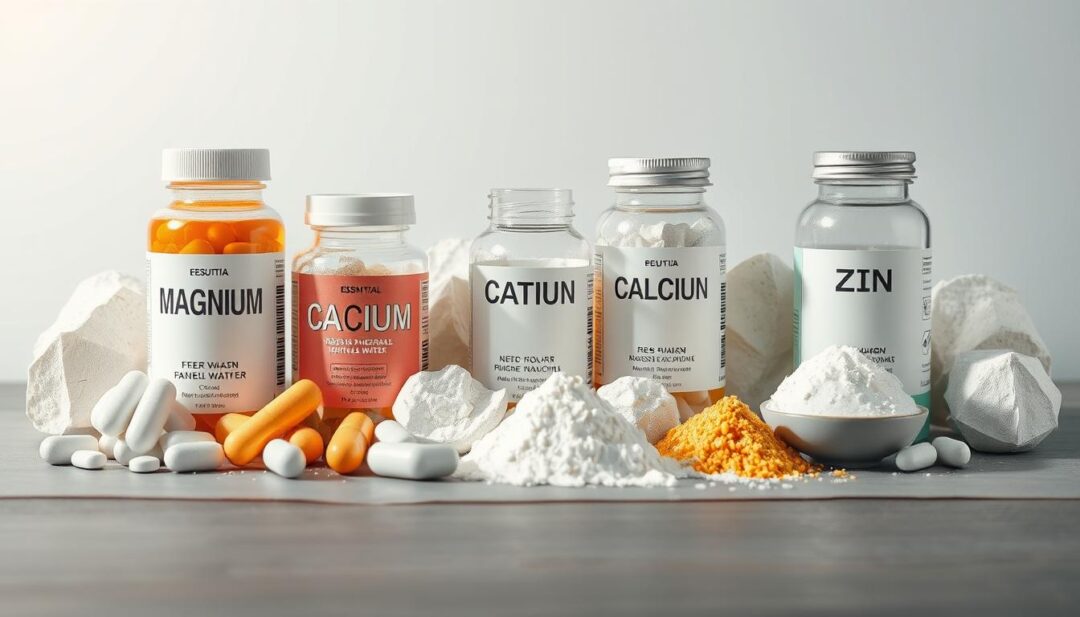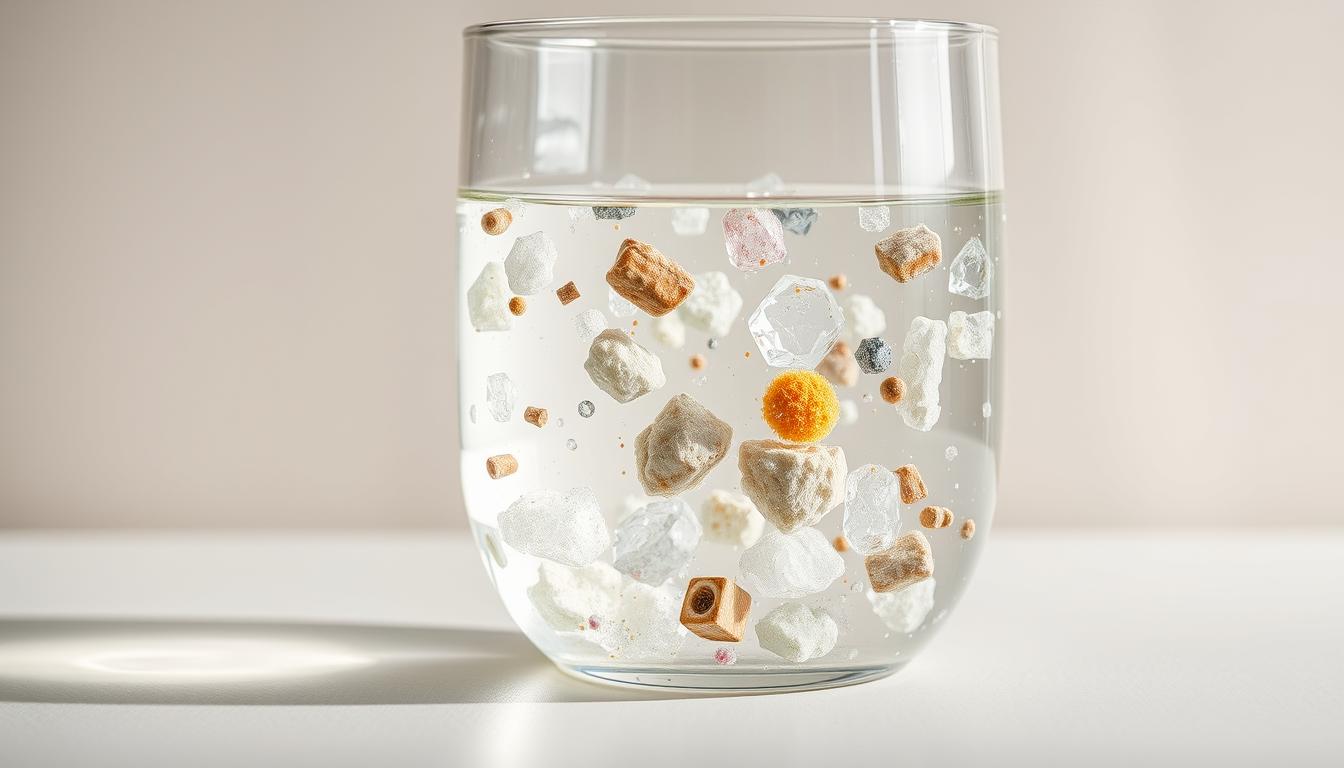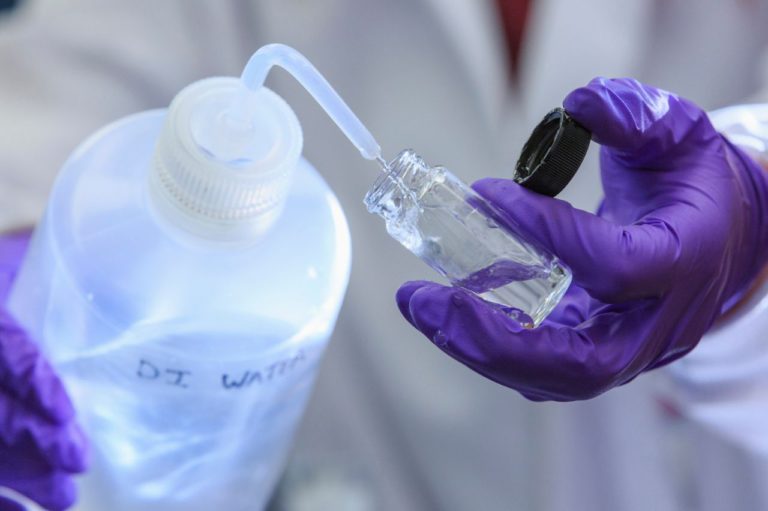What Minerals Should You Add to Distilled Water?
Are you drinking truly healthy water? Many of us assume that distilled water is the purest form of hydration, but is it missing something crucial?
Distilled water lacks essential minerals that our bodies need to function properly. Adding the right mineral additives can make a significant difference in our overall health.
So, which minerals should you add to make your distilled water more nutritious? The answer lies in understanding the importance of mineralization for optimal health.
Key Takeaways
- Distilled water lacks essential minerals.
- Adding mineral additives can enhance overall health.
- The right minerals can make distilled water more nutritious.
- Mineralization is crucial for optimal health.
- Understanding mineral additives is key to healthy hydration.
The Truth About Distilled Water and Mineral Depletion
Distillation removes impurities from water but also strips it of essential minerals. This process, while effective for purification, raises concerns about the health implications of consuming mineral-depleted water.
What Happens During the Distillation Process
During distillation, water is vaporized and then condensed back into liquid form, leaving behind impurities and minerals. This results in water that is very pure but lacking in essential minerals. Understanding this process is key to addressing the mineral depletion issue.
Benefits of Pure Distilled Water
Despite the concern over mineral loss, distilled water has its benefits. It is free from contaminants and can be particularly useful for people with certain health conditions or those living in areas with poor water quality. For more information on making mineral water at home, you can visit this resource.
The Downside: Missing Essential Minerals
The primary downside of distilled water is its lack of essential minerals. Regular consumption of mineral-free water may lead to mineral deficiencies over time. Therefore, it’s crucial to consider mineral supplements for pure water to maintain a healthy balance.
Why Minerals in Drinking Water Matter for Your Health
Minerals in drinking water play a crucial role in supporting various bodily functions. While we often focus on obtaining essential minerals through our diet, the minerals present in drinking water also contribute significantly to our overall mineral intake.
The Role of Water-Sourced Minerals in Bodily Functions
Water-sourced minerals are absorbed by the body and utilized in numerous physiological processes. Calcium and magnesium, for instance, are crucial for bone health and muscle function. Potassium helps regulate blood pressure, while sodium maintains fluid balance.
Comparing Mineral Intake from Food vs. Water
While food is a primary source of minerals, drinking water can provide a significant supplementary intake. The mineral content in water can vary greatly depending on its source. For example, distilled water is devoid of minerals, whereas mineral-rich spring water can be a good source of essential minerals.
“Drinking water can be a significant source of essential minerals, contributing to our overall mineral intake.”
World Health Organization Recommendations for Water Mineralization
The World Health Organization (WHO) provides guidelines for the mineralization of drinking water. These recommendations are designed to ensure that water is not only safe to drink but also beneficial for health.
Minimum Recommended Levels
WHO suggests minimum levels for certain minerals to ensure the water is adequately mineralized. For instance, calcium and magnesium are recommended at certain minimum concentrations to support bone health.
Optimal Mineral Concentrations
Optimal mineral concentrations in drinking water can vary based on individual needs and health status. For example, individuals with certain health conditions may require adjusted mineral intakes. The trace minerals for purified water can enhance its quality and health benefits.
Understanding and applying these recommendations can help in making informed decisions about the mineral content in drinking water, ultimately contributing to better health.
What Minerals to Add to Distilled Water: The Essential Elements
When using distilled water, it’s crucial to add back essential minerals to reap its benefits without compromising on nutritional value. Distilled water is pure, but this purity comes at the cost of lacking essential minerals that are vital for various bodily functions.
Calcium: Building Strong Bones and Teeth
Calcium is one of the most critical minerals that should be added to distilled water. It plays a pivotal role in building and maintaining strong bones and teeth. Moreover, calcium is essential for muscle function and nerve health.
Recommended Amounts
The recommended daily intake of calcium varies by age. For adults, the recommended amount is about 1,000 mg per day. When adding calcium to distilled water, it’s essential to consider this daily requirement to avoid excessive intake.
Forms of Calcium for Water
Calcium can be added to water in various forms, such as calcium carbonate or calcium chloride. Calcium carbonate is a popular choice due to its high calcium content and ability to help maintain a stable pH level in the body.
Magnesium: The Relaxation Mineral
Magnesium is another essential mineral that is often lacking in distilled water. It is crucial for muscle relaxation, nerve function, and energy production. Many people are deficient in magnesium, making it a vital addition to their water.
Daily Requirements
The daily recommended intake of magnesium is about 400 mg for men and 310 mg for women. Adding magnesium to distilled water can help meet this requirement, especially for individuals who have a low dietary intake.
Best Sources for Water Addition
Magnesium can be added to water in the form of magnesium chloride or magnesium sulfate. These forms are highly soluble and easily absorbed by the body.
Potassium and Sodium: Electrolyte Balance
Potassium and sodium are essential electrolytes that help maintain fluid balance and support various bodily functions. They are crucial for nerve function and muscle contractions.
Optimal Ratios
The optimal ratio of sodium to potassium varies, but generally, a balance between the two is recommended. The World Health Organization recommends that drinking water should contain a certain level of potassium and a minimal amount of sodium.
Health Benefits
Maintaining the right balance of potassium and sodium can help regulate blood pressure, support hydration, and enhance overall well-being.
| Mineral | Recommended Daily Intake | Forms for Water |
|---|---|---|
| Calcium | 1,000 mg | Calcium carbonate, calcium chloride |
| Magnesium | 400 mg (men), 310 mg (women) | Magnesium chloride, magnesium sulfate |
| Potassium | Varies, typically 4,700 mg | Potassium chloride |
| Sodium | Varies, typically less than 2,300 mg | Sodium chloride |
As Dr. Robert J. Miller, a renowned expert in nutritional medicine, once said, “Remineralizing distilled water is not just about adding minerals; it’s about restoring the natural balance that our bodies need to function optimally.”
“The quality of the water we drink is crucial for our health. Adding the right minerals can make a significant difference in our overall well-being.”
Beneficial Trace Minerals for Enhanced Water Quality
Enhancing distilled water with trace minerals is a simple yet effective way to improve its quality and nutritional value. Trace minerals, though required in smaller amounts, play a crucial role in various bodily functions, from supporting immune health to facilitating metabolic processes.

Zinc: Immune Support and Metabolic Function
Zinc is a vital trace mineral that supports immune function and is involved in numerous metabolic processes. Adding zinc to distilled water can help maintain optimal levels, supporting overall health and well-being.
Selenium: Antioxidant Properties
Selenium is known for its powerful antioxidant properties, helping to protect cells from damage and supporting overall health. Incorporating selenium into distilled water can enhance its nutritional profile.
Copper, Manganese, and Chromium: Micronutrient Benefits
Copper, manganese, and chromium are essential trace minerals that contribute to various bodily functions, including energy production, antioxidant defenses, and metabolic regulation. Adding these minerals to distilled water can help ensure adequate intake.
Silica: The Forgotten Mineral for Skin, Hair, and Nails
Silica is often overlooked but is crucial for the health of skin, hair, and nails. Incorporating silica into distilled water can support the health and appearance of these tissues, promoting a more youthful and vibrant appearance.
By understanding the importance of these trace minerals and how to incorporate them into distilled water, individuals can significantly enhance their water’s quality and nutritional value, supporting overall health and well-being.
Top Commercial Products for Adding Minerals to Distilled Water
When it comes to remineralizing distilled water, several top-notch commercial products can help restore essential minerals. These products come in various forms, including liquid drops, powders, and specialized mineral blends.
Liquid Mineral Drops and Concentrates
Liquid mineral drops are a convenient way to add minerals to distilled water. They are highly concentrated, making them efficient for daily use.
Trace Minerals Research Concentrace
Trace Minerals Research Concentrace is a popular choice, offering a broad spectrum of minerals in a highly bioavailable form. This product is known for its ability to provide a wide range of trace minerals, making it an excellent addition to distilled water.
Quinton Isotonic Minerals
Quinton Isotonic Minerals is another well-regarded product, derived from seawater and processed to maintain its natural mineral balance. It’s isotonic, meaning it’s perfectly balanced with the body’s fluids, making it an effective choice for hydration and mineral replenishment.
Electrolyte and Mineral Powders
Electrolyte powders are a popular choice for those looking to replenish minerals and enhance hydration, especially after exercise or during illness.
Ultima Replenisher
Ultima Replenisher is a versatile electrolyte powder that contains a balanced mix of essential minerals. It’s free from artificial flavors and colors, making it a great option for those seeking a natural product.
Lyteshow Electrolytes
Lyteshow Electrolytes is designed for athletes and individuals with high electrolyte needs. It provides a potent dose of essential electrolytes without added sugars or artificial ingredients.
Alkalizing Mineral Products
For those interested in alkalizing their water, several products are available that not only add minerals but also help adjust the pH level.
pH Drops
pH Drops are a concentrated liquid supplement that can alkalize water while adding beneficial minerals. They are easy to use and effective in creating alkaline water.
Alkaline Mineral Sachets
Alkaline Mineral Sachets offer a convenient, single-serve solution for remineralizing and alkalizing distilled water. They are portable and easy to use on the go, making them ideal for travel or daily hydration.
By choosing the right commercial product, you can easily enhance your distilled water with essential minerals, improving your hydration and overall health.
Natural Methods for Mineralizing Distilled Water
Distilled water, while pure, lacks essential minerals that can be naturally replenished using several approaches. For those seeking to enhance their drinking water, there are multiple natural methods to consider.
Himalayan Pink Salt: Nature’s Mineral Complex
Himalayan pink salt is a popular choice for mineralizing distilled water due to its rich mineral profile. It contains over 80 minerals, including potassium, magnesium, and calcium, which are essential for various bodily functions.
Proper Dilution Ratios
When using Himalayan pink salt, it’s crucial to maintain the right dilution ratio to avoid over-salination. A general guideline is to use about 1/4 teaspoon of salt per liter of water.
Mineral Profile
The mineral profile of Himalayan pink salt can significantly enhance the mineral content of distilled water. According to a study published on PMC, the mineral composition can vary, but it generally includes a broad spectrum of trace minerals.
Celtic Sea Salt and Other Ocean-Derived Options
Celtic sea salt is another natural option for enhancing distilled water with minerals. Harvested by hand, it retains more of its natural minerals compared to refined salts.
Mineral-Rich Foods to Complement Your Water Intake
In addition to adding minerals directly to water, consuming mineral-rich foods can complement your hydration routine. Foods like leafy greens, nuts, and seeds are rich in essential minerals.
Using Mineral-Rich Spring Water as a Base
Another approach is to use mineral-rich spring water as a base. Spring water naturally contains various minerals, making it a good alternative or addition to distilled water.
By incorporating these natural methods, you can effectively enhance the mineral content of your distilled water, making it a healthier choice for daily consumption.
DIY Remineralization: Creating Your Own Mineral Blend
DIY remineralization allows you to customize the mineral content of your drinking water to suit your needs. By creating your own mineral blend, you can ensure that your distilled water is not only pure but also rich in essential minerals.
Basic Ingredients for Homemade Mineral Drops
To start, you’ll need a few basic ingredients. These include:
- Calcium: Essential for bone health, you can use calcium carbonate or calcium chloride.
- Magnesium: Crucial for muscle and nerve function, magnesium chloride or magnesium sulfate are good options.
- Potassium: Important for heart health, potassium chloride is a common choice.
- Trace minerals: Consider adding a pinch of sea salt or Himalayan pink salt for a broad spectrum of trace minerals.
Step-by-Step Guide to Remineralizing Distilled Water
Remineralizing your distilled water is straightforward. Here’s a simple step-by-step guide:
- Start with distilled water.
- Add your chosen minerals according to the recommended daily intake values.
- Stir well to ensure the minerals are fully dissolved.
- Store the remineralized water in a clean, airtight container.
For a more detailed guide on the amounts of minerals to add, you can refer to resources that discuss how reverse osmosis affects mineral content in water.
Storage Solutions and Shelf Life
It’s essential to store your homemade mineral blend and remineralized water properly. Use glass containers to avoid any chemical leaching that can occur with plastic. Keep the containers away from direct sunlight and heat sources.
Cost Comparison: DIY vs. Commercial Options
Creating your own mineral blend can be cost-effective compared to buying commercial products. For instance, purchasing individual minerals in bulk can be significantly cheaper in the long run. However, the initial investment in quality minerals and storage containers may be higher.
In conclusion, DIY remineralization offers a flexible and potentially cost-effective way to enhance your drinking water with essential minerals. By understanding the basic ingredients and steps involved, you can take control of your water’s mineral content.
Special Considerations for Different Life Stages and Health Conditions
Different life stages and health conditions necessitate distinct mineral profiles in distilled water to support optimal health. Understanding these varying needs is crucial for individuals looking to maximize the benefits of their drinking water.
Mineral Needs During Pregnancy and Lactation
During pregnancy and lactation, women’s mineral needs increase to support the health of both mother and child. Calcium and magnesium are particularly important for fetal development and maternal health. Ensuring adequate intake of these minerals through remineralized distilled water can contribute to a healthier pregnancy.
Children’s Specific Mineral Requirements
Children have different mineral needs compared to adults, with a focus on supporting growth and development. Zinc and iron are crucial for children’s health, playing significant roles in immune function and cognitive development. Remineralizing distilled water with these essential trace minerals can help meet children’s daily needs.
Athletic Performance and Enhanced Mineral Needs
Athletes or individuals with high physical activity levels require additional minerals to replenish those lost through sweat. Potassium and sodium are key electrolytes that need to be replenished to maintain proper hydration and support athletic performance. Adding these minerals to distilled water can help athletes stay hydrated and perform at their best.
Adjusting Minerals for Specific Health Conditions
Certain health conditions require adjustments in mineral intake. For individuals with heart and cardiovascular health concerns, monitoring sodium and potassium levels is crucial. For those with kidney considerations, managing mineral intake is vital to avoid overloading the kidneys.
Heart and Cardiovascular Health
Individuals with heart conditions need to be mindful of their mineral intake, particularly sodium and potassium, to maintain heart health. Remineralized distilled water can be tailored to support cardiovascular well-being by adjusting the levels of these minerals.
Kidney Considerations
For individuals with kidney issues, it’s essential to manage mineral intake carefully. Certain minerals can put additional strain on the kidneys, so adjusting the mineral profile of distilled water can help support kidney health.

Measuring and Monitoring Your Water’s Mineral Content
Ensuring your drinking water has the right mineral balance is crucial for optimal health. To achieve this, it’s essential to measure and monitor the mineral content of your water regularly.
At-Home Testing Methods and Kits
At-home testing kits provide a convenient way to check your water’s mineral levels. These kits usually include test strips or a digital meter that measures parameters like pH and mineral content. While they offer a good initial assessment, their accuracy can vary.
Professional Water Analysis Options
For a more accurate analysis, consider professional water testing services. Laboratories use advanced equipment to provide detailed reports on your water’s mineral composition, including levels of calcium, magnesium, and other essential minerals.
Ideal Mineral Levels to Target
The ideal mineral levels in drinking water can vary based on individual needs and health guidelines. Generally, water should contain a balanced mix of minerals like calcium and magnesium. The World Health Organization provides guidelines on recommended mineral levels in drinking water.
Signs Your Water May Be Improperly Mineralized
Improper mineralization can manifest in various ways. Signs include water that tastes too pure or lacks flavor, or conversely, water with an unpleasant taste or odor. Health-wise, consuming improperly mineralized water over time may lead to mineral deficiencies or imbalances.
| Mineral | Ideal Level (mg/L) | Health Benefit |
|---|---|---|
| Calcium | 50-100 | Strong bones and teeth |
| Magnesium | 20-50 | Muscle and nerve function |
| Potassium | 10-20 | Heart health and blood pressure |
Regularly checking and adjusting your water’s mineral content can help ensure you’re getting the right balance for optimal health.
Conclusion: Finding Your Perfect Mineral Balance
Enhancing distilled water with minerals is a simple yet effective way to improve your drinking water’s quality. By understanding what minerals to add to distilled water, you can create a personalized hydration plan that meets your specific needs.
Whether you choose to use commercial products or natural methods, the key is to find the right balance of essential minerals like calcium, magnesium, and potassium. This balance is crucial for maintaining optimal bodily functions and overall health.
As you remineralize your distilled water, consider your individual needs, such as your age, health status, and lifestyle. By making informed decisions about your drinking water, you can take a significant step towards achieving optimal hydration and overall well-being.
Start your journey to better hydration today by exploring the various options for enhancing distilled water with minerals. With a little knowledge and experimentation, you can create a mineral-rich drinking water that nourishes your body and supports your overall health.







